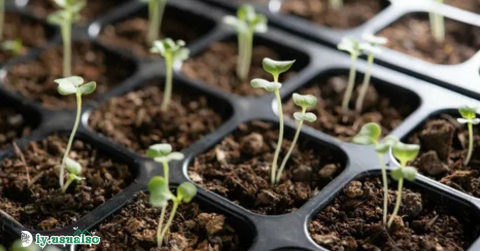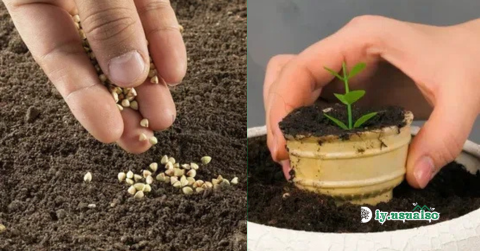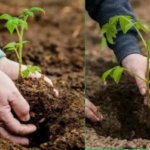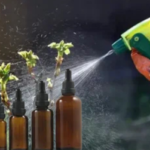If you plant your seeds too shallow, you risk the seeds drying out and dying before they germinate.

Some seeds, such as lettuce, require light to germinate, so you may need to simply press the seeds into the soil rather than covering them – the back of your seed packet will tell you if this is the case. A good rule of thumb is to not plant the seeds deeper than their diameter.
Consistent Water (Important!)
Water is one of the most important ingredients in starting seeds. Too much can lead to disease, mold, and mildew, and too little can lead to dead plants.
It’s a good idea to have a spray bottle handy to keep the soil evenly moist when you plant your seeds.
You’ll need to water more often to prevent drying out, but you’ll reduce the risk of disease and rotting seeds. Keep in mind that starting your garden from seed takes more time – if you’re using small seed trays or peat pellets, you’ll need to mist the trays twice a day to keep the soil moist.



